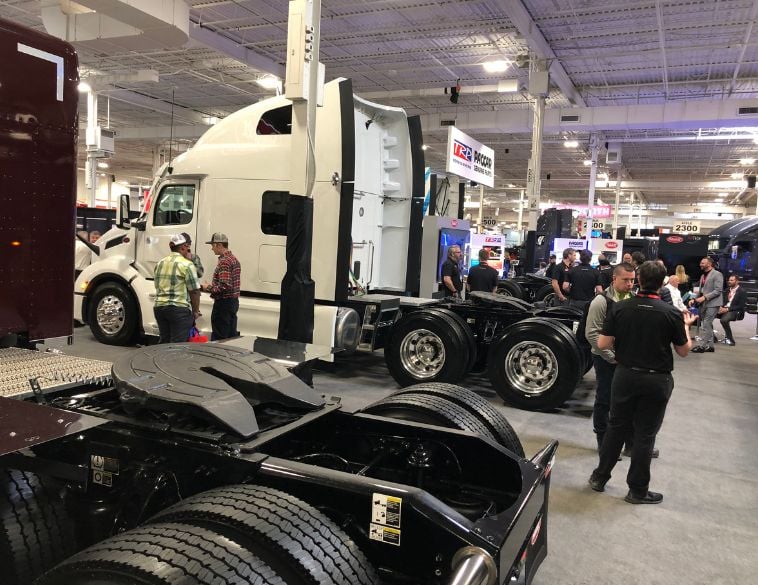After valuable services rendered by the vehicles in the fleet, the company wishes to resell them and get the maximum out of them.
Before finding a buyer for the departing workforce, the fleet manager must assess their condition. Based on the interview file, he will be able to decide if his rolling stock is ripe for a second life outside the company.
When is a car ripe for its second life?
When asked, Claudio De Angelis, Remarketing Manager at Foss National Leasing in Laval, says, “Most fleet customers sell or recycle their vehicles after three to five years, on average. The main cost of owning a fleet vehicle is depreciation, followed by fuel and maintenance.”

Thanking the vehicle after this period allows the company to get the most out of it before having to pay for expensive repair costs, an expense that also deprives the driver of his daily tool. In this vein, De Angelis argues that reselling vehicles in good condition to staff members “is an incentive to attract new hires and keep employees happy. When properly maintained, these used vehicles are excellent purchases”.
Time and money
In the remarketing process, which is intended to be strategic, the manager will of course consider the profit made from the transaction, but also the resale time. Consequently, the idea of offering the vehicle to an employee right away is interesting.
“When a driver knows they can buy the vehicle, they become more likely to take care of it, which means regular maintenance, which is less costly for the company,” De Angelis continues.
In addition, when a fleet vehicle is resold internally at fair market value, both parties benefit.
“The driver wins by buying a vehicle he knows well at or near wholesale prices. As for the company, it sells it quickly without incurring additional transportation, reconditioning and auction costs.”
In closing, Claudio De Angelis mentions that the vehicle could also be auctioned as a second option.
In conclusion, Claudio De Angelis mentions that the vehicle could also be sold at auction as a second option.
Hybrid solution

Rob Luba, Department Manager, Supply Chain at Holman, further develops the auction aspect by combining the virtual component with the in-person version of these events. In this hybrid formula, the company finds the opportunity to present its vehicles to a larger number of potential buyers in order to get the most out of each transaction.
“These auction sites help fleet managers find the right buyer for each unit, especially for highly specialized professional vehicles and equipment that may only be of interest to a limited number of buyers,” Luba says, noting that some of these platforms focus on certain types of units or on a particular region.
Recognizing that remarketing has its own set of technical and logistical intricacies, Rob Luba says it’s an area where many companies rely on an informed partner. The latter, in the light of an expertise, finds auction sites more appropriate to the material submitted, and therefore more likely to make each resale profitable.
“Your remarketing partner can help you tailor your liquidation strategy to your organization’s specific needs. He or she can help you determine whether it’s more important to maximize resale returns or liquidate units as quickly as possible, or to target a sweet spot in between.”
In addition, Rob Luba does not ignore the idea, common in the industry, of handing over the company’s vehicles to employees. Some managers even make this gesture in order to thank one of their flagships.
“Some companies offer the vehicle to the employee at well below market value as part of a retirement plan in recognition of their years of service with the company,” he states.
Municipal vehicles

What about remarketing options for a municipal fleet interested in divesting its workforce in a timely manner? Claude Gauthier, Mayor of the City of Richelieu, stated at the outset that the sale of vehicles to employees is the responsibility of the City’s Registrar’s Office and that it involves a specific procedure. On the other hand, he suggests the possibility of auctioning the fleet vehicles to another municipality that wishes to meet a specific need, or to a third party. However, this procedure requires the approval of the City Council.
As an alternative, the Chief Magistrate points out that the fleet manager can use the Government Procurement Centre’s Asset Disposal Portal to resell fleet items, which often encompass a wide range of vehicle types and related equipment.
“Rolling stock is generally sold by tender, for equipment located in the regions, and by auction for equipment that can be transported to the Montreal and Quebec City sites, with the goal of encouraging the reuse of the asset in the community.”
Mr. Gauthier also specifies that each proposed vehicle is first inspected by the SAAQ, a procedure used to determine the status and condition of the goods. Then he talks about processing and delivery times.
“The time frames vary. For example, properties sold by tender are posted for a period of approximately two weeks. After that time, the sales contract is issued for pick-up. For vehicles sold by auction, the sales contracts are distributed on site for immediate possession,” he summarizes, adding that “you must nevertheless respect the participation periods issued by the government between the months of April and December.”



